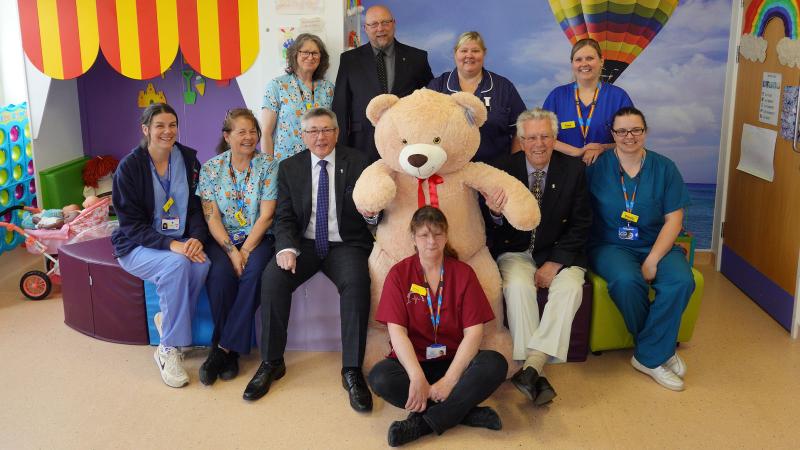Role of Honour
Sharing a bond of brothers as well as one of marriage, the outgoing Master of Great Yarmouth’s St Mary’s Lodge has had the honour of installing his husband as successor.
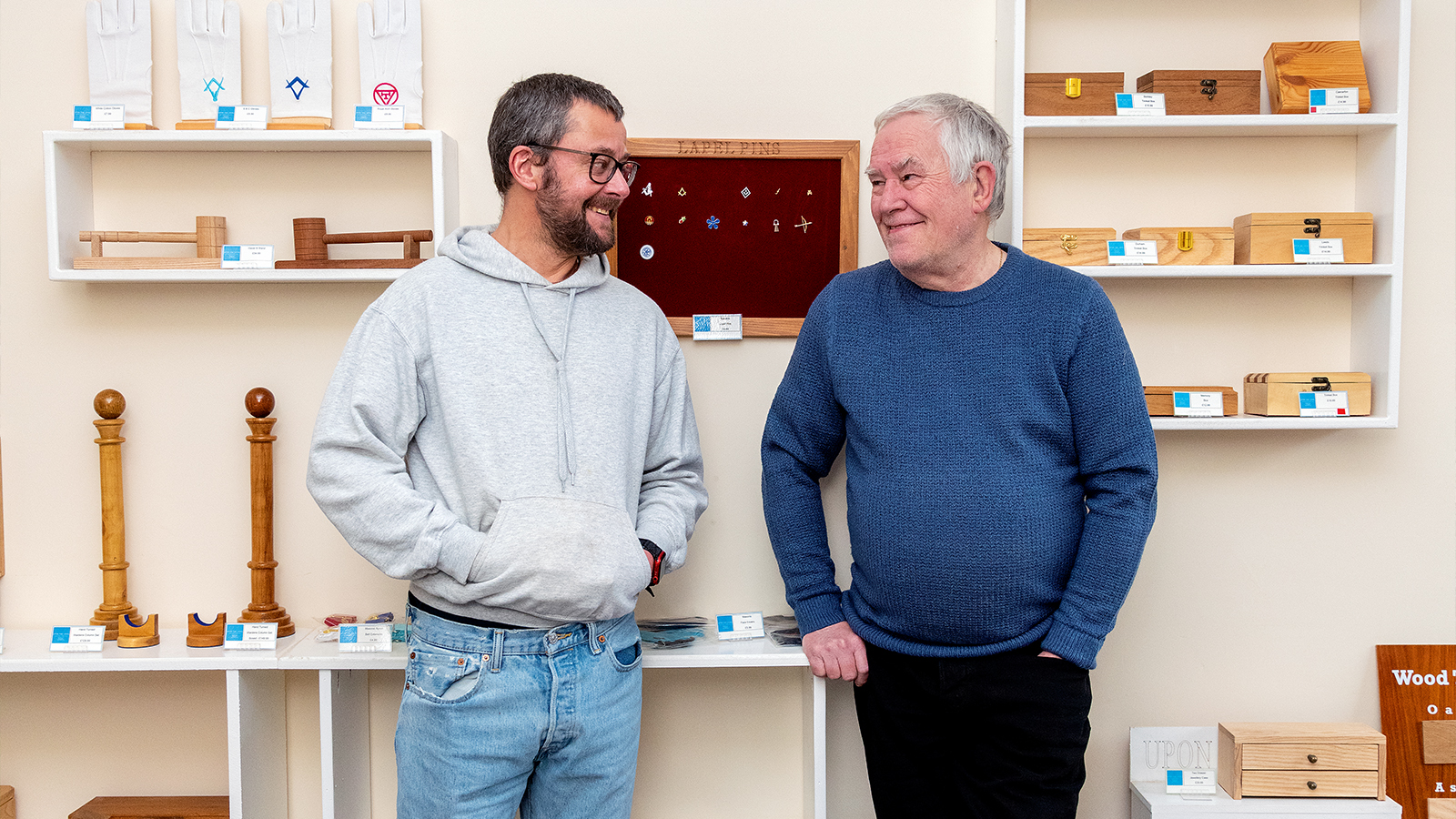
Gary and Steven have been married for 8 years, and together for 24.
It could be a first in Freemasonry, as well as a sign of how far Freemasonry and the wider society has come in recent years. In January 2023, Gary Pickering, outgoing Master of St Mary’s Lodge No. 3828 in Great Yarmouth, installed his successor, Steven Darby – who just so happens to be his husband.
Gary and Steven met in 1999 and married in 2015, the year Steven followed his husband into Freemasonry. Now, the couple run a shop in Great Yarmouth selling Masonic regalia, while Steven fulfils his duties as Master. And while Gary might no longer be in the Chair, his own responsibilities haven’t quite ended.
‘Steven doesn’t drive, so this year I am the Master’s chauffeur,’
says Gary during a break at their shop, Upon the Level.
‘When he goes on a visit, I go along as well. Freemasonry has been very welcoming. As Master, I visited a lot of Lodges, and they were all friendly and welcoming. You are always made to feel part of the community and I’ve never been to a Lodge where I’ve not been looked after.’
Steven agrees.
‘We’ve never had any prejudice as a same-sex couple in Freemasonry,’
he says.
‘In fact, we’ve been widely supported. One gentleman whose partner was in Freemasonry said he hoped one day he could also put his husband into the Chair.’
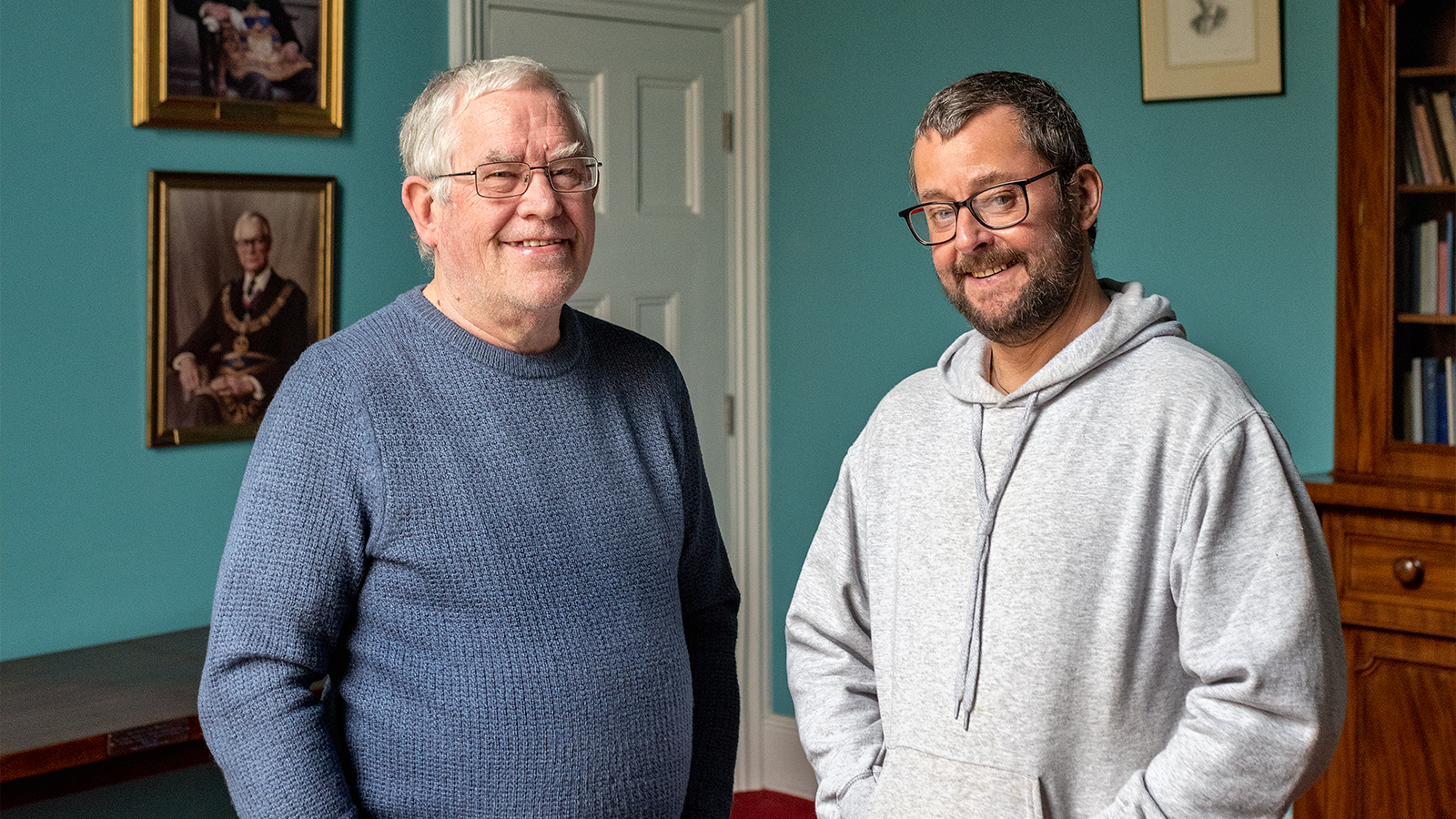
The installation was particularly special as it was personal and happy.
Steven and Gary say the Installation was a special occasion, almost as memorable as their wedding and not just because it took place on Burns Night, complete with pipers and haggis for the Festive Board. St Mary’s Lodge No. 3828 in Great Yarmouth is, through a quirk of history, part of Suffolk Province, even though the Lodge is physically located in Norfolk. Representing Suffolk at the Installation was the Provincial Junior Grand Warden. After the ceremony, he told the couple it was one of the best Installations he’d ever attended because it was personal and happy. Gary continues,
‘There was the right amount of solemnity, but a lot of happiness and joy.’
‘It was a special evening,’
agrees Steven.
‘Because Gary was doing the ceremony, I didn’t have any nerves. I knew that whatever was going to happen, I could trust him.’
That wasn’t quite the case for Gary, who says he was more nervous installing Steven than he was when put into the Chair himself.
‘I wanted to get it right so that it was a special night for Steven,’
he says.
‘It was special and one I am so glad I did. You go to some Lodges and the ceremony is divided between different people, but I wanted to do all of it, so when I pushed Steven into the Chair it came as quite a shock for him.’
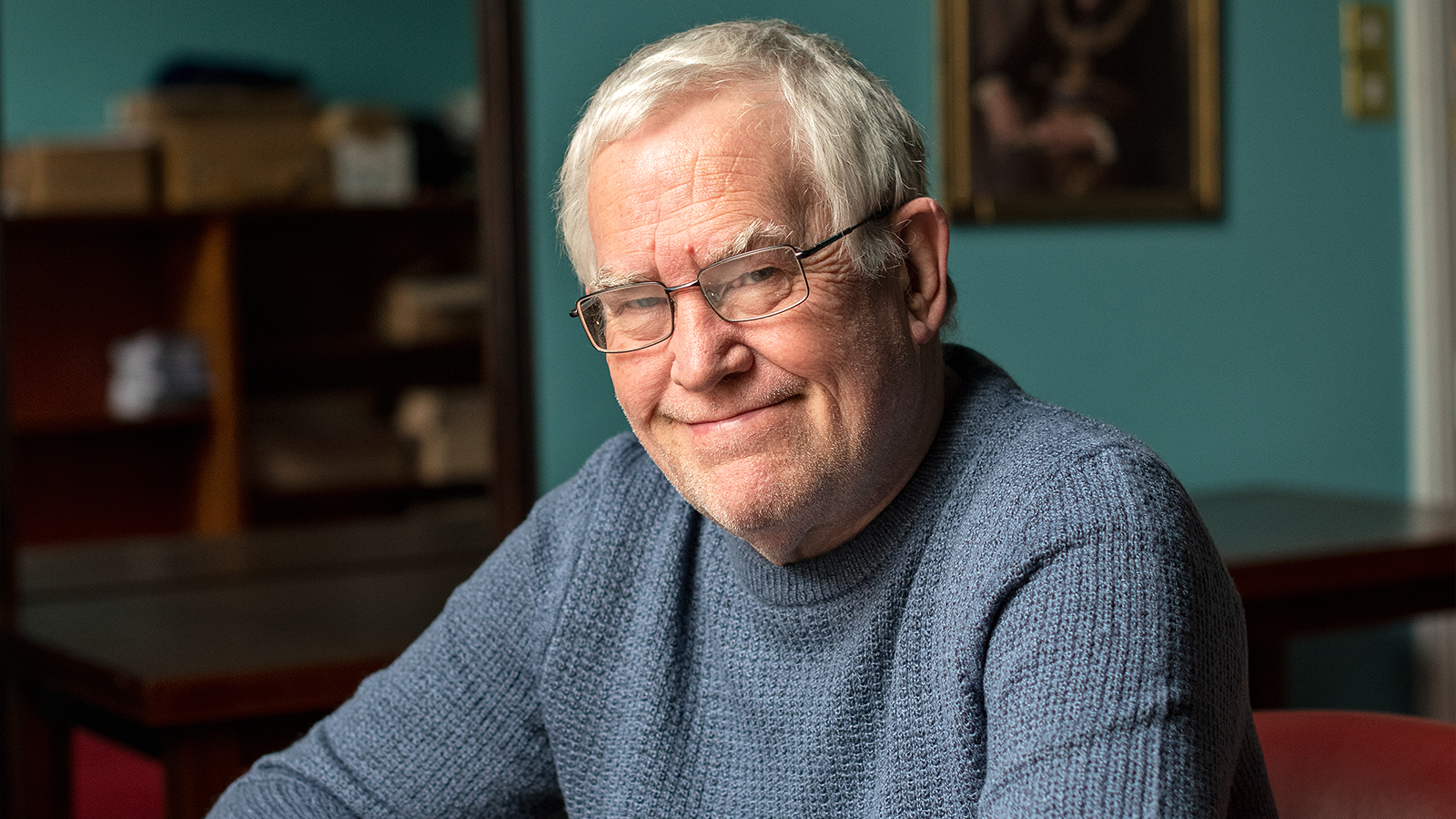
Gary introduced Steven to Freemasonry.
Gary was introduced to Freemasonry by colleagues at the secondary school where he used to work. His proposer carried out his initiation, first, second and third degrees, exalted him into the Royal Arch and carried out the inner workings at his own Installation as Master – something Gary thinks could be unique.
At first, Steven would accompany Gary at Lodge social events, but as he saw how much Gary was getting from Freemasonry, he took the plunge and joined the Lodge himself. Both love the sense of community as well as the chance to support charities, while the previously reserved Steven has experienced a late blossoming thanks to the responsibilities of office and the support of his fellow Freemasons.
‘I was very shy and timid before,’
Steven says.
‘I could never imagine myself standing in front of a room full of people. Freemasonry has given me that confidence and enabled me to do things I didn’t think were possible, such as learning all the ritual.’
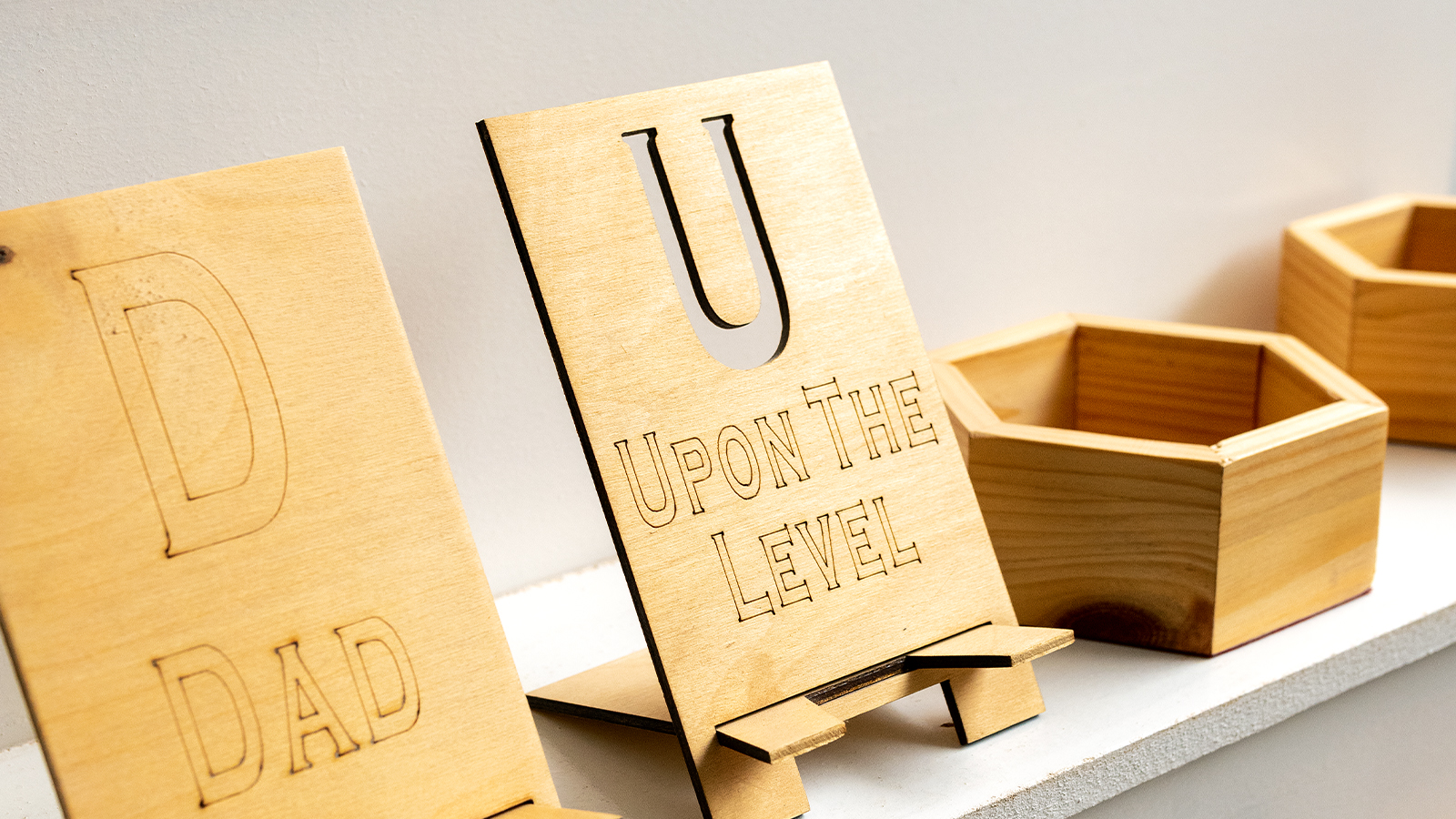
Gary has always enjoyed woodworking as a hobby, in his retirement he hopes to make it something more.
Freemasonry has also provided an opportunity for Steven and Gary to explore second careers as shopkeepers. Upon the Level sells Masonic regalia as well as carpentry made by Gary, who has always enjoyed woodwork and was a design and technology teacher for years. On retirement, he bought all the equipment he required to continue his hobby. Opening a shop has allowed him to turn that into a business and he makes a range of Masonic and non-Masonic items, including gavels, toolboxes, jewellery boxes and furniture. Some of the Masonic pieces have been purchased by customers as far afield as the United States and Japan, while others are used closer to home.
‘Every year our new Master gets his own gavel, a knocking block and a box inscribed with their name and the year they were Master,’
says Gary.
‘I instigated that about six or seven years ago and it is now a Lodge tradition. They get a choice of wood, so Steven chose beech, a nice light one. I had to make my own as there was nobody to make it for me and I chose a wood that everybody said was too dark, but I love it.’
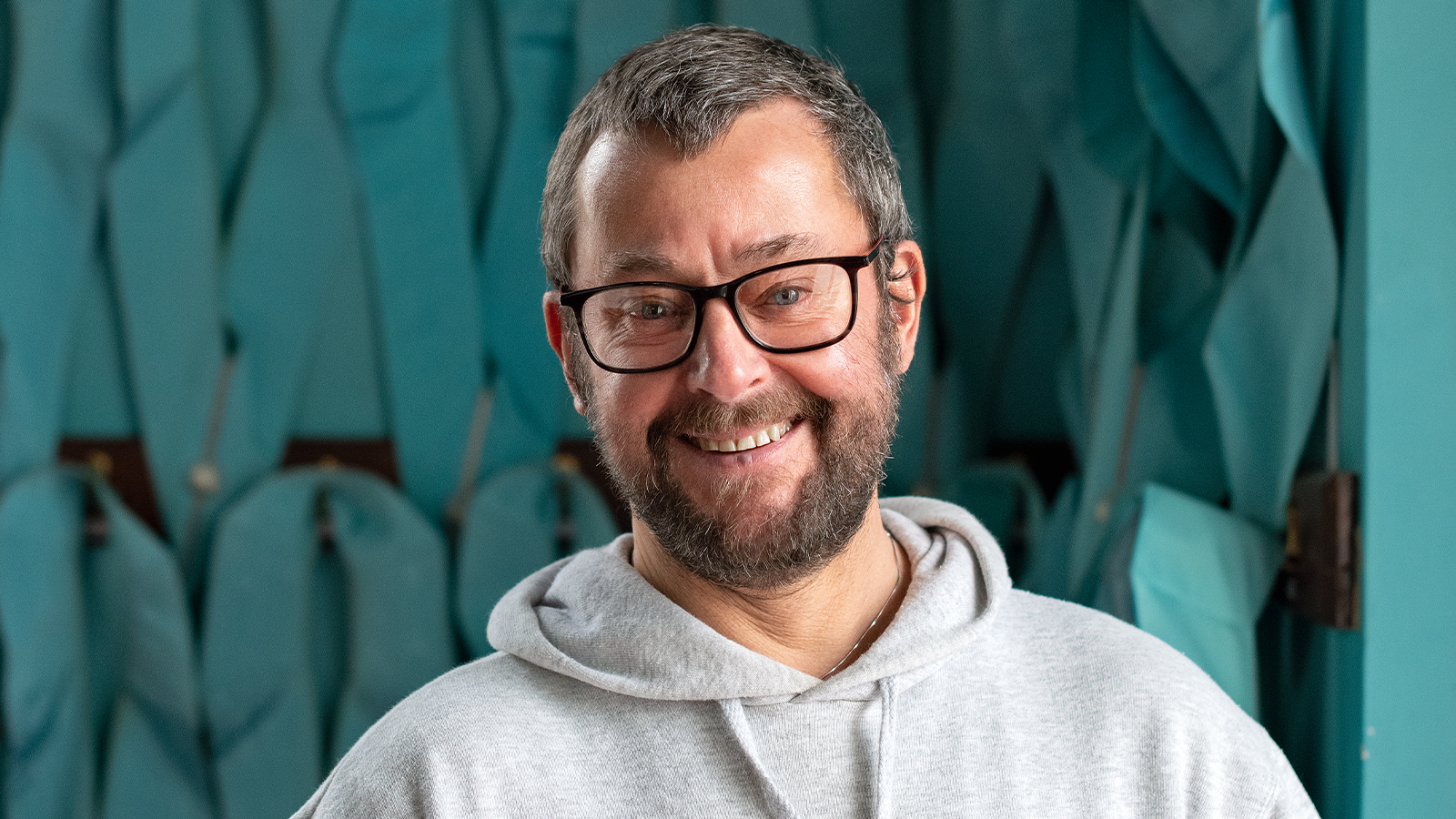
Once Stevens year as Master ends, he is considering taking further side degrees.
As well as their mother Lodge of St Mary’s No. 3828, Gary and Steven are both members of the Royal Arch St Andrews Chapter 1631. They are considering taking further side degrees – but only when Steven’s year as Master has ended.
‘Steven did nine Lodge visits in his first month, so it’s busy,’
says Gary.
‘Taking on more wouldn’t be right as we couldn’t give it the attention required. Becoming a Freemason is one of the most enjoyable things I have done. The friends and colleagues I’ve made through Freemasonry far outstrips anything I did before. As a teacher, I was used to standing in front of a class and talking. Joining Freemasonry, learning the ritual and meeting new people filled the void. I can’t imagine where I’d be if I didn’t have Freemasonry.’
Milestones and Masonry
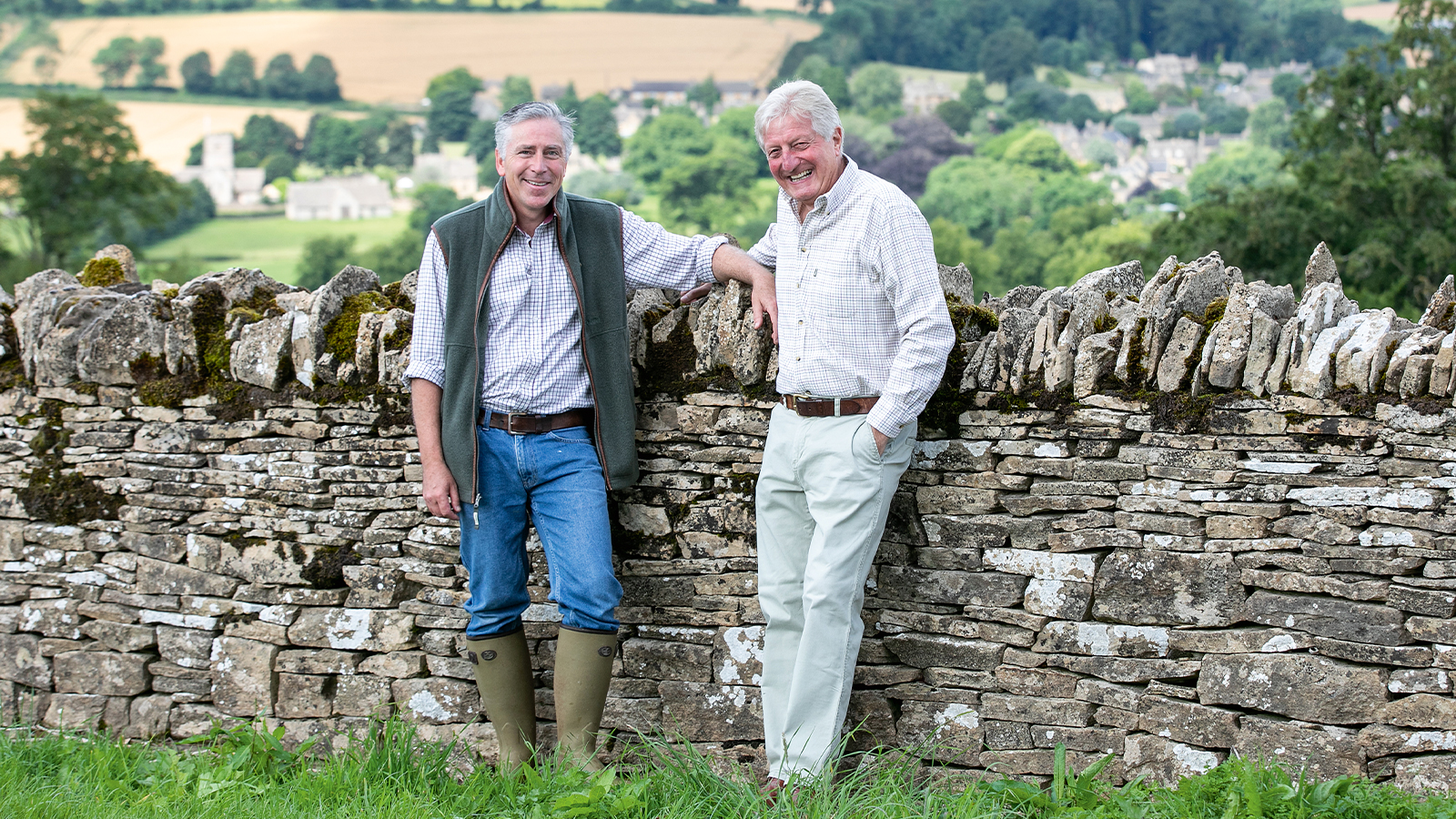
After 18 years, Tony was delighted when his husband decided to join Freemasonry.
Master of the Kennel Club Lodge, Tony Allcock has just had the honour of installing fellow dog lover and civil partner Tony Byron-Allcock in its landmark 150th year
This year, Freemason Tony Allcock has the great honour of presiding as Worshipful Master of Connaught Lodge No. 3270 – the canine special interest Lodge that has a large membership of Kennel Club members.
It’s a particularly special year in which to take the reins. The Kennel Club celebrates its 150th anniversary, having enjoyed royal patronage since 1873, with HRH Prince Michael of Kent KCVO being an active President since 1983. In April, the club was granted the ‘Royal’ prefix by King Charles III and is now The Royal Kennel Club, an organisation Tony is extremely proud to serve as Chairman. But there’s another reason why this year is so special. Tony has just initiated his partner, ‘Tony2’, as he’s called, into Connaught Lodge at Duke St, London, which was followed by a dinner at The Kennel Club in Clarges Street.
‘The date had long been noted by many who looked forward to celebrating the significance of the occasion when a man initiates his husband,’
says Tony.
‘You can imagine my delight and surprise when my civil partner Tony2, of his own free will and accord and despite enduring 18 years of me attending various Masonic meetings each week, announced he now felt confident enough to join our fraternity. This marks a noteworthy milestone, giving clear indication that attitudes have significantly changed, so those that might have felt inhibited now feel able to join.’
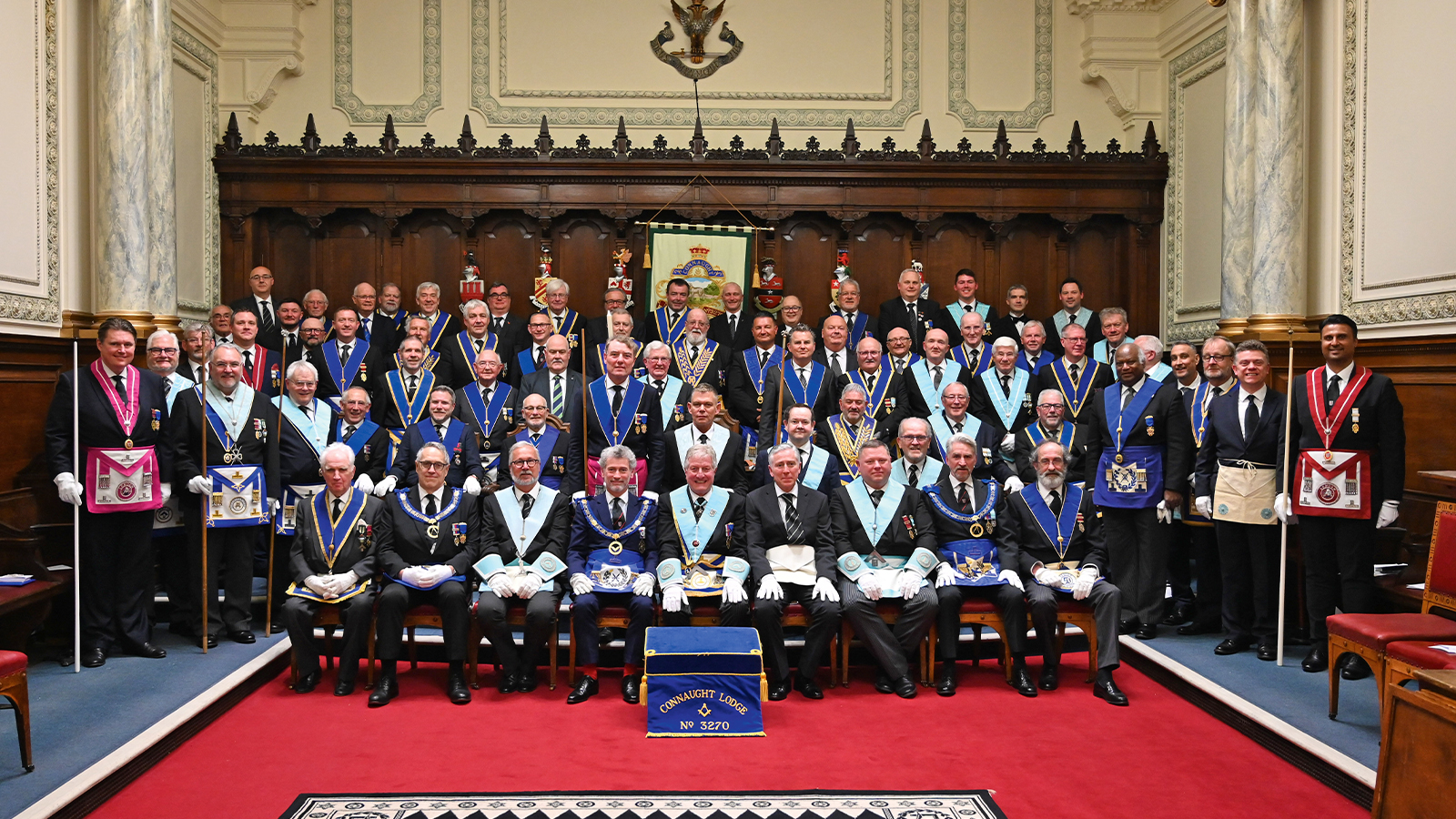
Connaught Lodge No. 3270
Tony was initiated into Freemasonry at an early age when he was successfully competing in bowls at world-class level. As well as amassing 15 world titles, he also owned a large commercial boarding kennels and an animal welfare centre in Gloucestershire, supported by a registered charity. Before retiring from the sport in 2002, he was awarded the MBE for services to sport, and the OBE for services to sport administration and charity (for his work as Chief Executive of Bowls England and for fundraising for Visually Impaired Bowls England) by Queen Elizabeth II.
‘There was gendered expectation to embody all those characteristics expected of men,’
he remembers.
‘Being a gay man presented a huge challenge, and unacceptance and isolation in both sport and Freemasonry were hard to cope with. I came so very close to leaving the Craft. Fortunately I didn’t, as today there is significant evidence to affirm a dramatic change in attitude and culture, particularly towards gay Freemasons.’
The couple met when Tony2 worked in the House of Commons with the Serjeant-at-Arms.
‘At this time he had no idea who I was or what I did,’
says Tony.
‘It was only after our initial meeting he mentioned my name to his brother, who instantly revealed he knew of me as he was an ardent viewer of bowls on TV. Initially, I withheld from Tony2 the fact that I had dogs – not just a few but around 23 at the time we met. This he would find out later!’
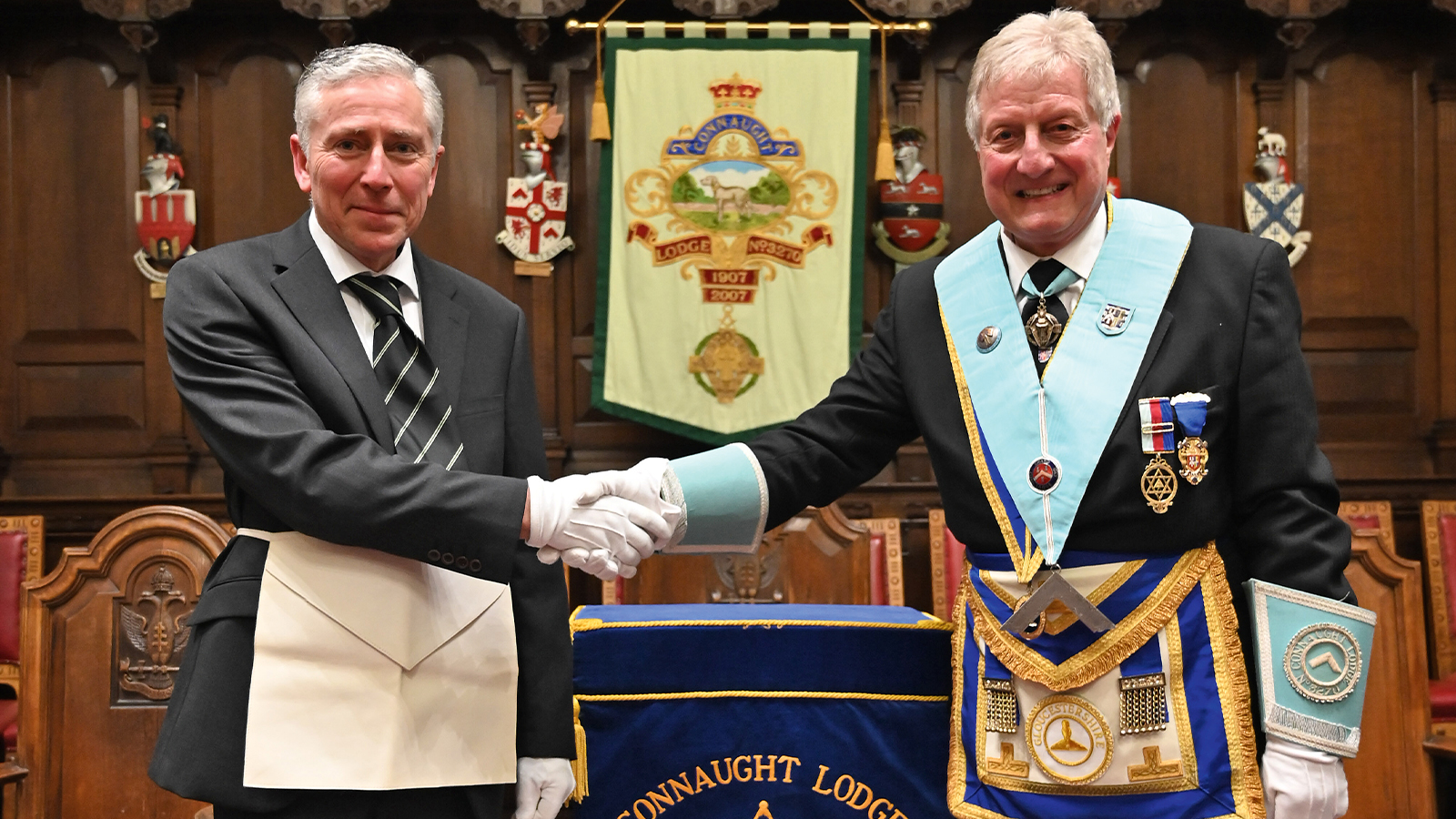
‘My message for anyone joining Freemasonry is simple: you will find friendship. Whatever you can contribute will reap rewards’
A friend of the couple, Rob O’Donoghue, is a Past Master of a Lodge in Stow-on-the-Wold near their home. He was instrumental in Tony2 thinking about joining Freemasonry. But instead of joining a local Lodge, Tony2 instead opted for Connaught Lodge No. 3270 as his mother Lodge.
‘Opinions about couples such as Tony and I have shifted substantially over the past decade,’
says Tony2.
‘Our numerous Masonic friends feel that people should be free to chose (within due bounds) that which makes them happy. This has been supported by the Church of England. I feel confident about joining the Craft and look forward to meeting new Masonic friends who accept me just as I am.’
And Tony has no hesitation in recommending the Craft to others.
‘My message for anyone joining Freemasonry is simple: you will find friendship. Whatever you can contribute (not necessarily financial) will reap rewards. Freemasonry has changed considerably. It might be an organisation with heritage – and long may this continue – but not to the detriment of discouraging new members. It can rightfully and openly proclaim its work in support for charity through its magnificent funding campaigns and community support.
As a gay couple, we both felt very relaxed about this special initiation. In many ways, it spells out a very poignant message that the principle is recognised and accepted. We have already received such great support from far and wide.’
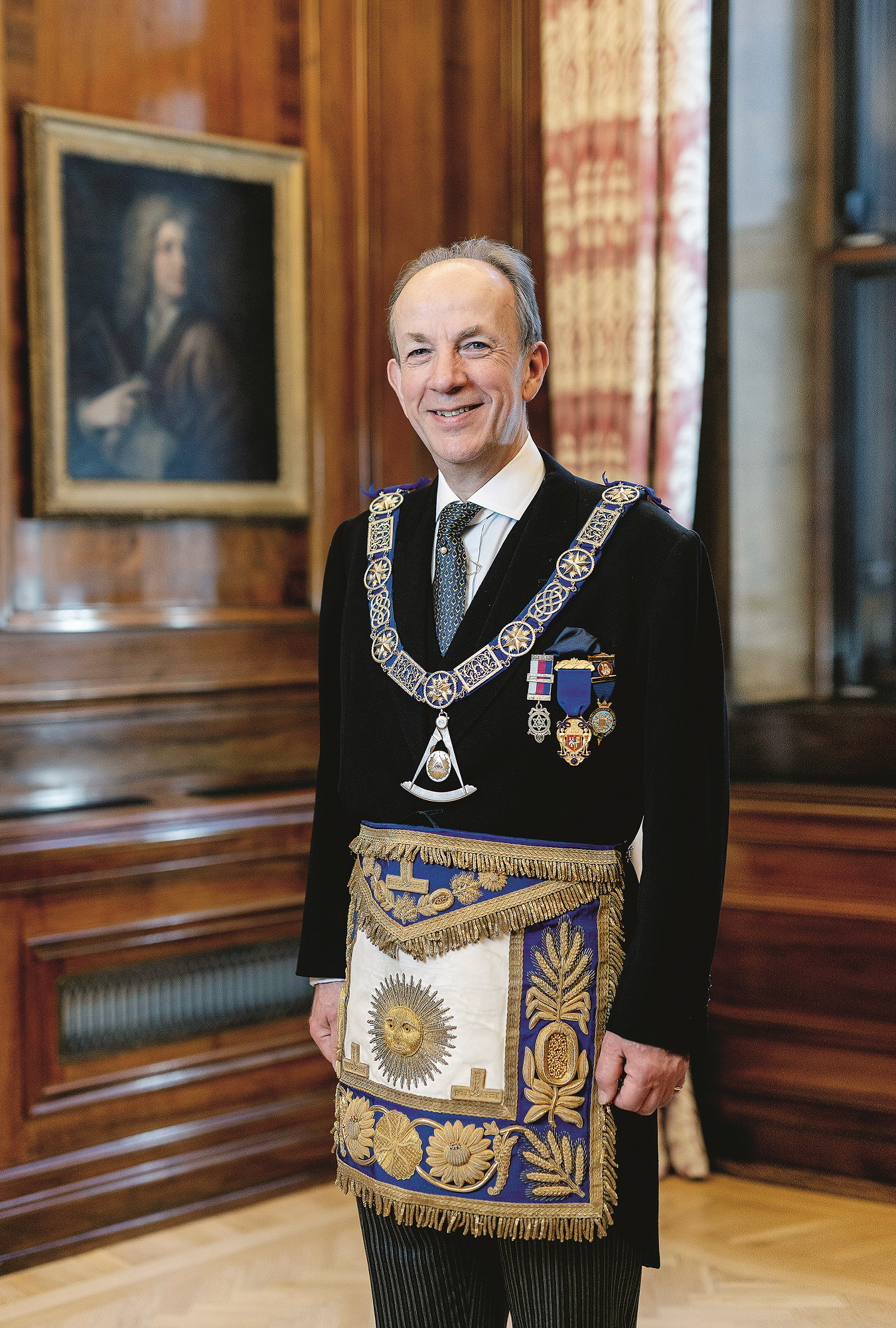

 Charles Lennox, 2nd Duke of Richmond, by circle of Jean Marc Nattier.
Charles Lennox, 2nd Duke of Richmond, by circle of Jean Marc Nattier.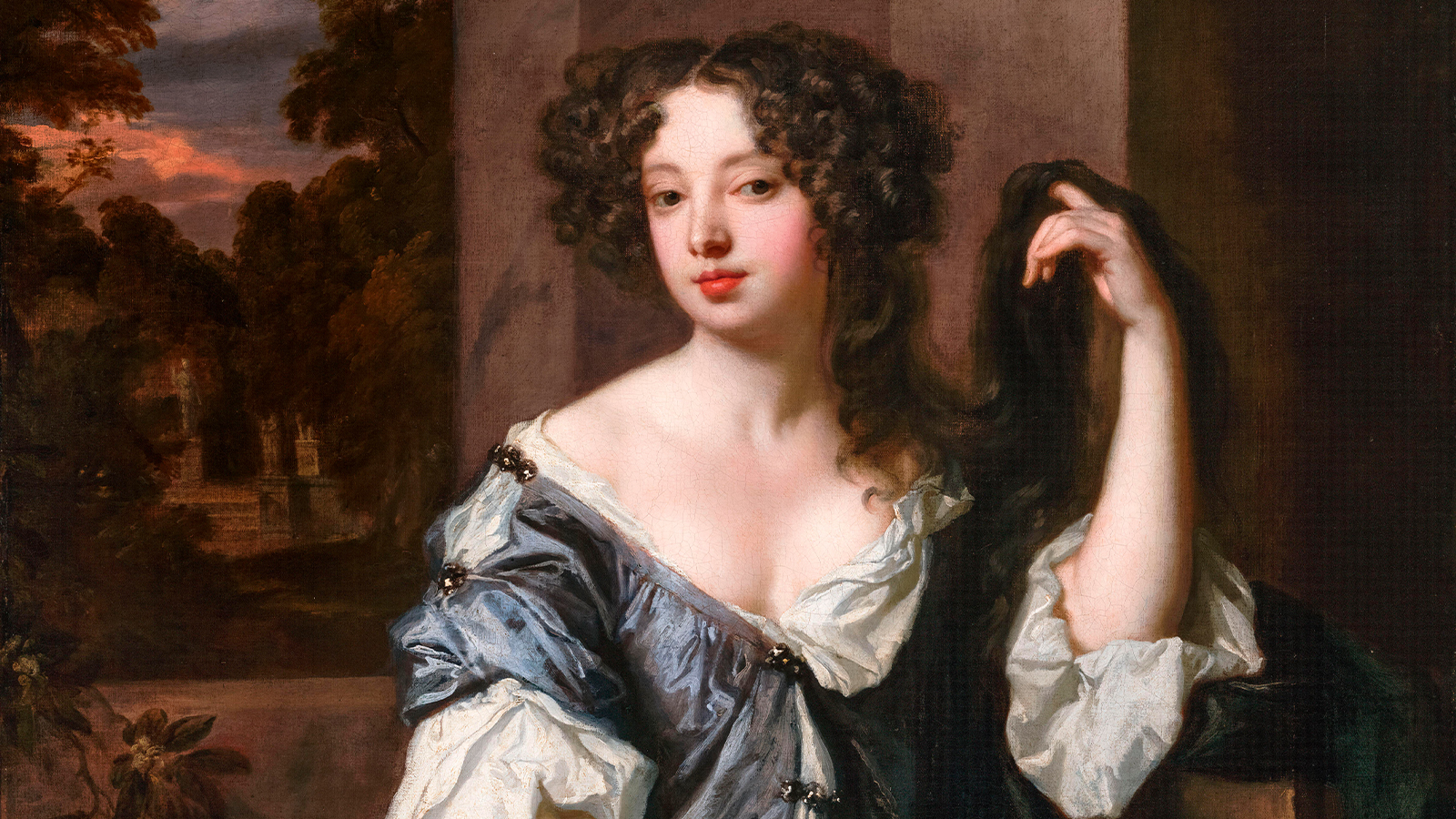 Louise de Kérouaille, Duchess of Portsmouth, by Sir Peter Lely.
Louise de Kérouaille, Duchess of Portsmouth, by Sir Peter Lely.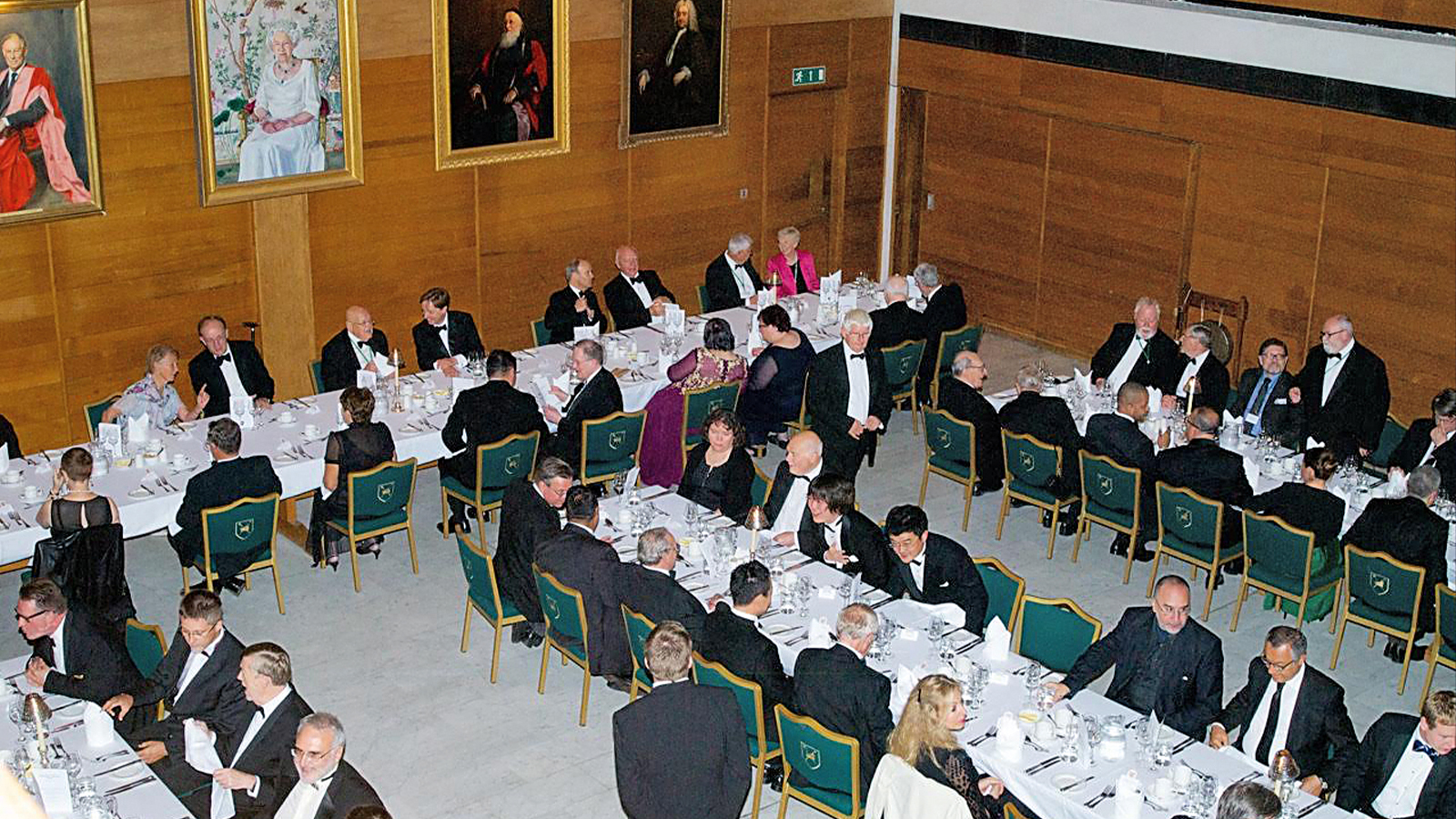 The event to mark the Tercentenary of The 1723 Constitutions will take place at Queens’ College, University of Cambridge.
The event to mark the Tercentenary of The 1723 Constitutions will take place at Queens’ College, University of Cambridge.

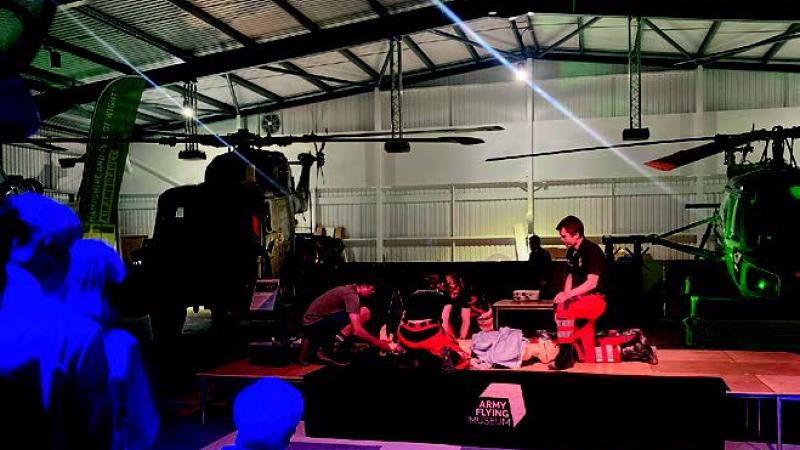

 Gary and Steven have been married for 8 years, and together for 24.
Gary and Steven have been married for 8 years, and together for 24. The installation was particularly special as it was personal and happy.
The installation was particularly special as it was personal and happy. Gary introduced Steven to Freemasonry.
Gary introduced Steven to Freemasonry. Gary has always enjoyed woodworking as a hobby, in his retirement he hopes to make it something more.
Gary has always enjoyed woodworking as a hobby, in his retirement he hopes to make it something more. Once Stevens year as Master ends, he is considering taking further side degrees.
Once Stevens year as Master ends, he is considering taking further side degrees. After 18 years, Tony was delighted when his husband decided to join Freemasonry.
After 18 years, Tony was delighted when his husband decided to join Freemasonry. Connaught Lodge No. 3270
Connaught Lodge No. 3270 ‘My message for anyone joining Freemasonry is simple: you will find friendship. Whatever you can contribute will reap rewards’
‘My message for anyone joining Freemasonry is simple: you will find friendship. Whatever you can contribute will reap rewards’ ‘I have been a Freemason for 35 years. We have to do things differently to successfully recruit and retain’
‘I have been a Freemason for 35 years. We have to do things differently to successfully recruit and retain’ Freemason Matthew has been warmly welcomed into the Craft.
Freemason Matthew has been warmly welcomed into the Craft. Attendees were treated to a range of demonstrations and presentations.
Attendees were treated to a range of demonstrations and presentations.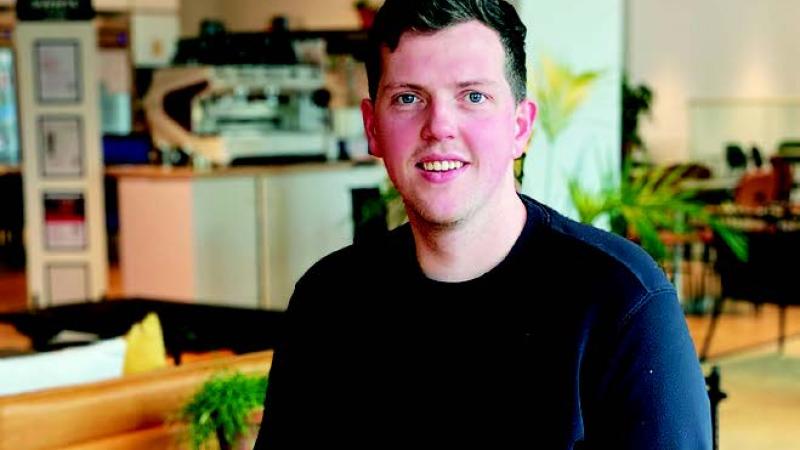
 'I want to enable everybody to invest in their health'
'I want to enable everybody to invest in their health'
 Graham Spence using Lifelites VR technology.
Graham Spence using Lifelites VR technology. The hardworking volunteers at Vinnies preparing dessert.
The hardworking volunteers at Vinnies preparing dessert.
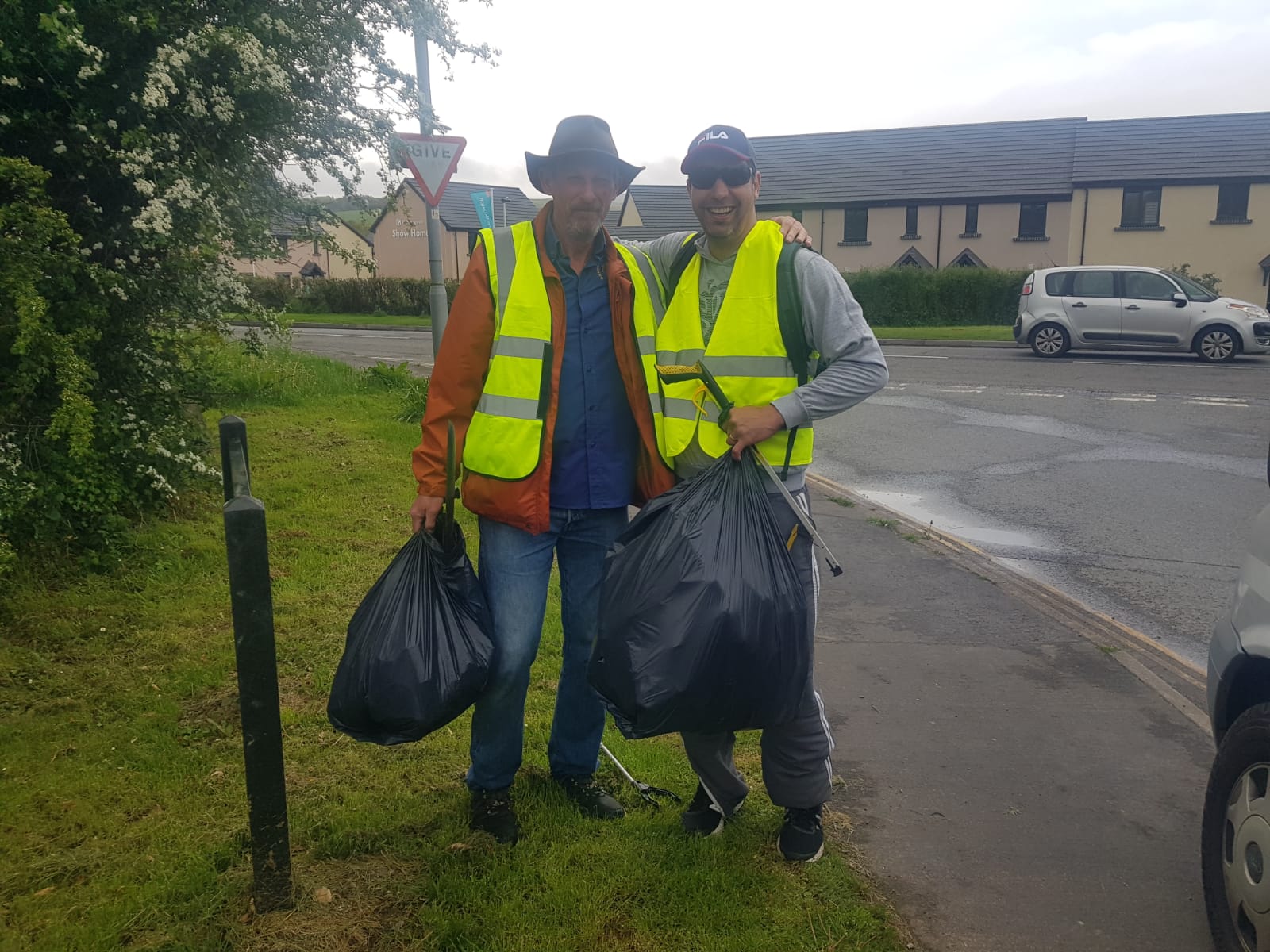 Freemasons in Okehampton helping clean up litter for a 'Clean for the King'
Freemasons in Okehampton helping clean up litter for a 'Clean for the King'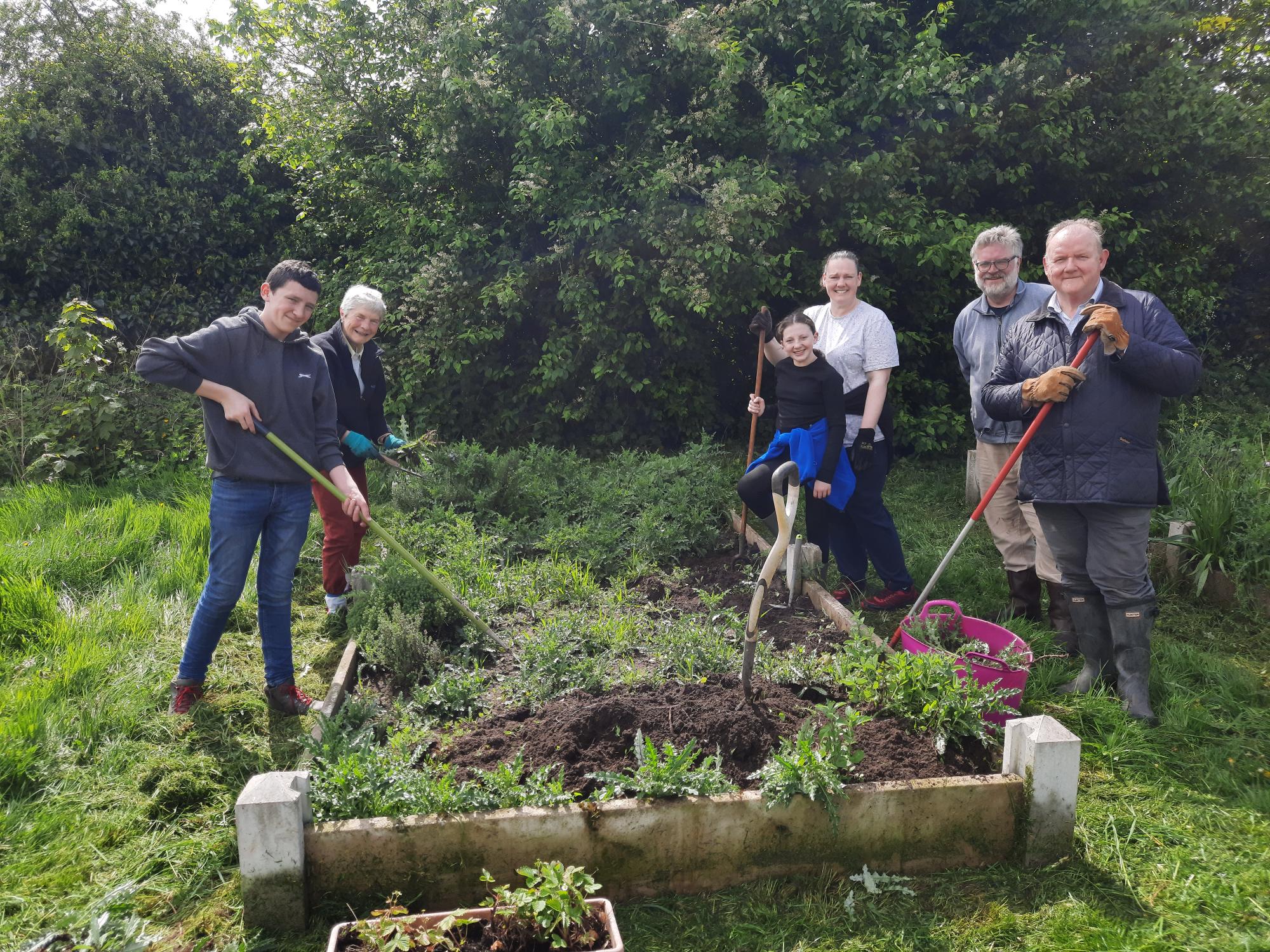 Freemasons in Cheshire helped plant trees and tend to plant beds for The Big Help Out
Freemasons in Cheshire helped plant trees and tend to plant beds for The Big Help Out Left to Right: Reuben Ayres, Charlie Yelland, Amanda Howard (CEO Age Concern North Devon), Tina Harris, Sarah Sime and Tim Golder.
Left to Right: Reuben Ayres, Charlie Yelland, Amanda Howard (CEO Age Concern North Devon), Tina Harris, Sarah Sime and Tim Golder.

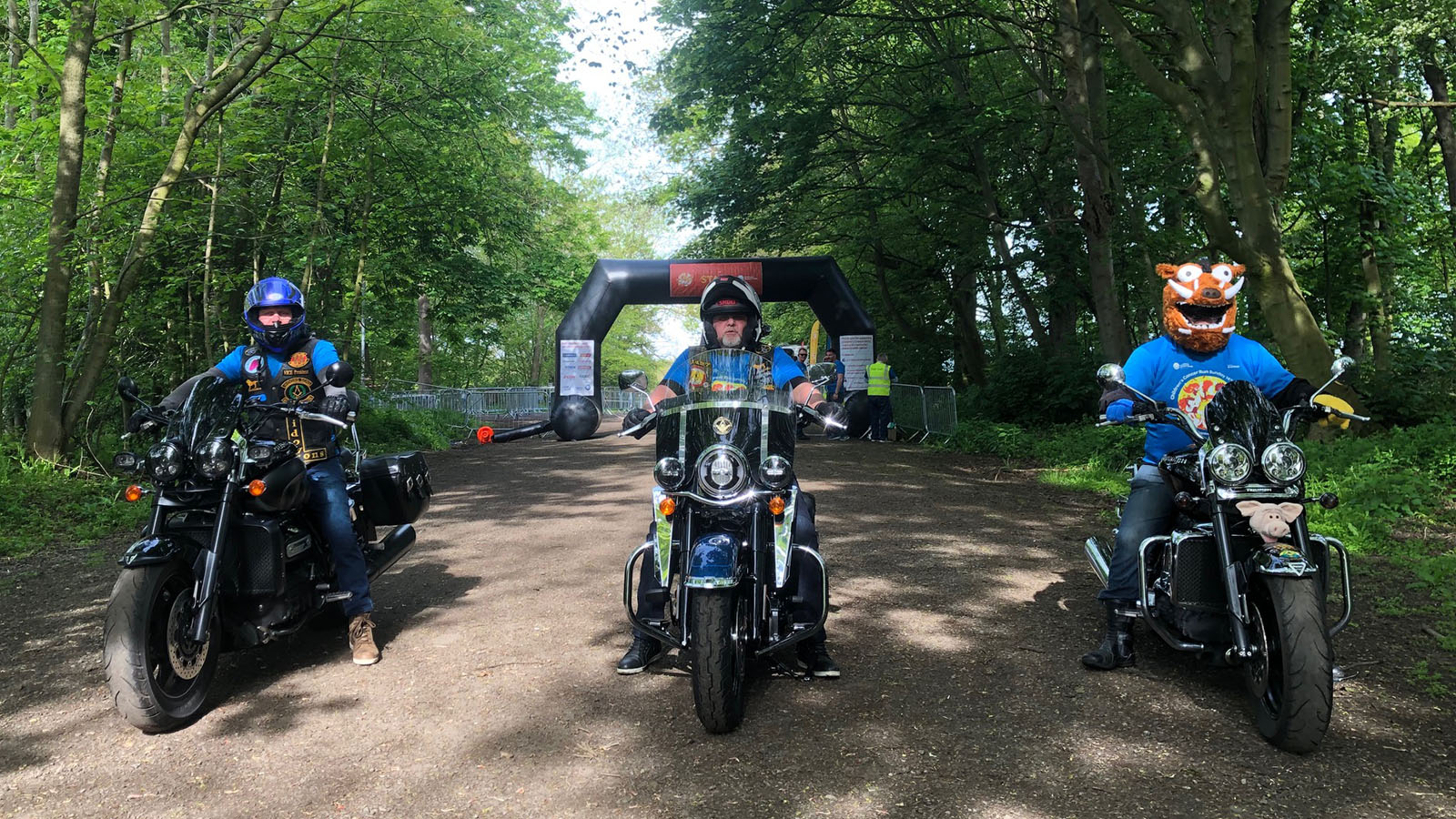 Three widows sons freemasons on their bikes at the fun run.
Three widows sons freemasons on their bikes at the fun run.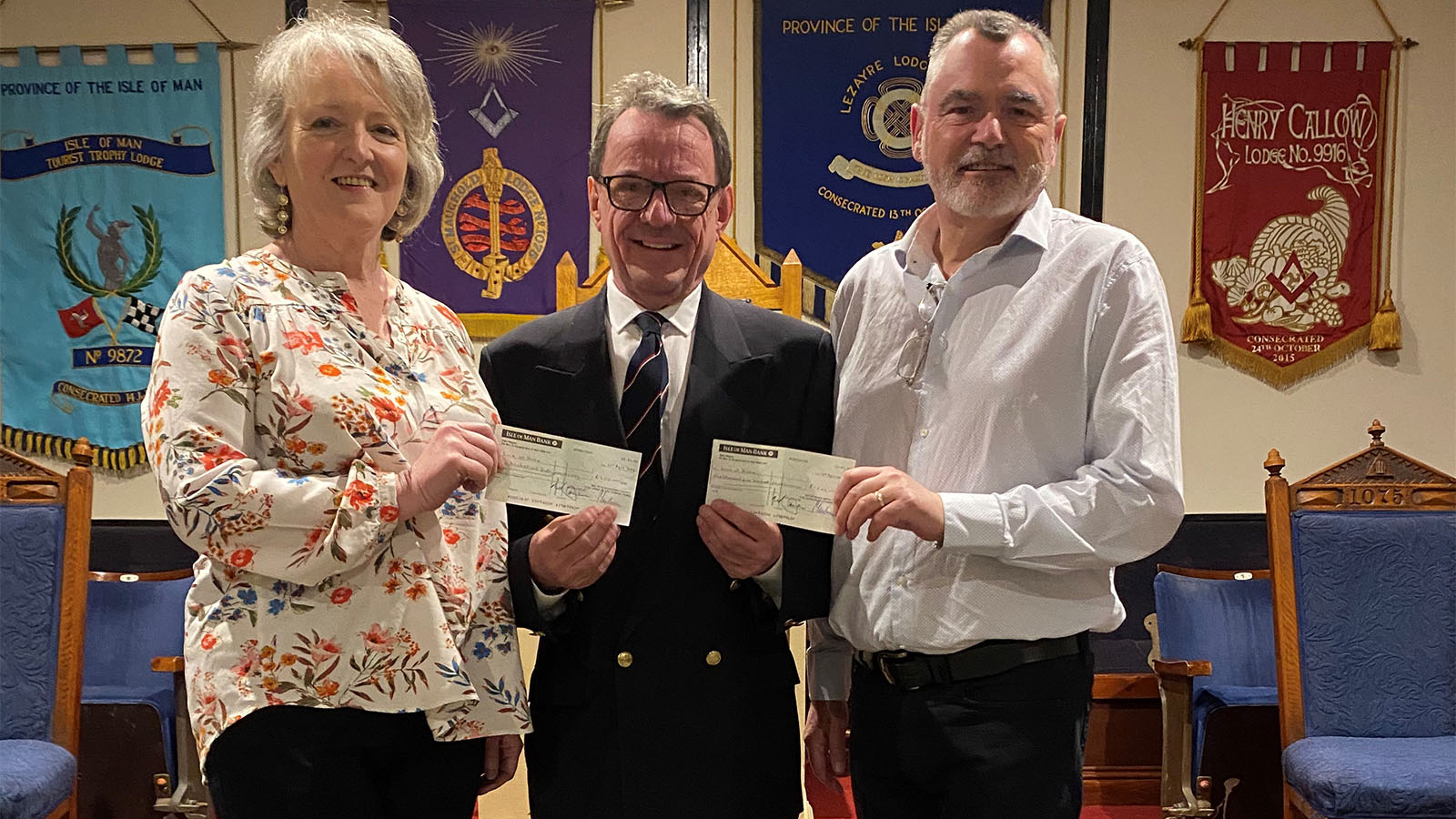 (Left to right): Tina Hall, Quintin Gill (Live at Home Charity representative) and Steve Hall of the St. Maughold Lodge of Freemasons.
(Left to right): Tina Hall, Quintin Gill (Live at Home Charity representative) and Steve Hall of the St. Maughold Lodge of Freemasons.
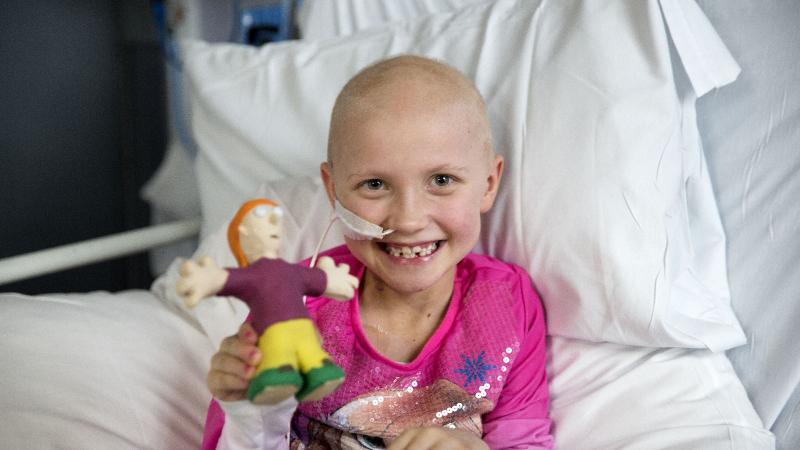
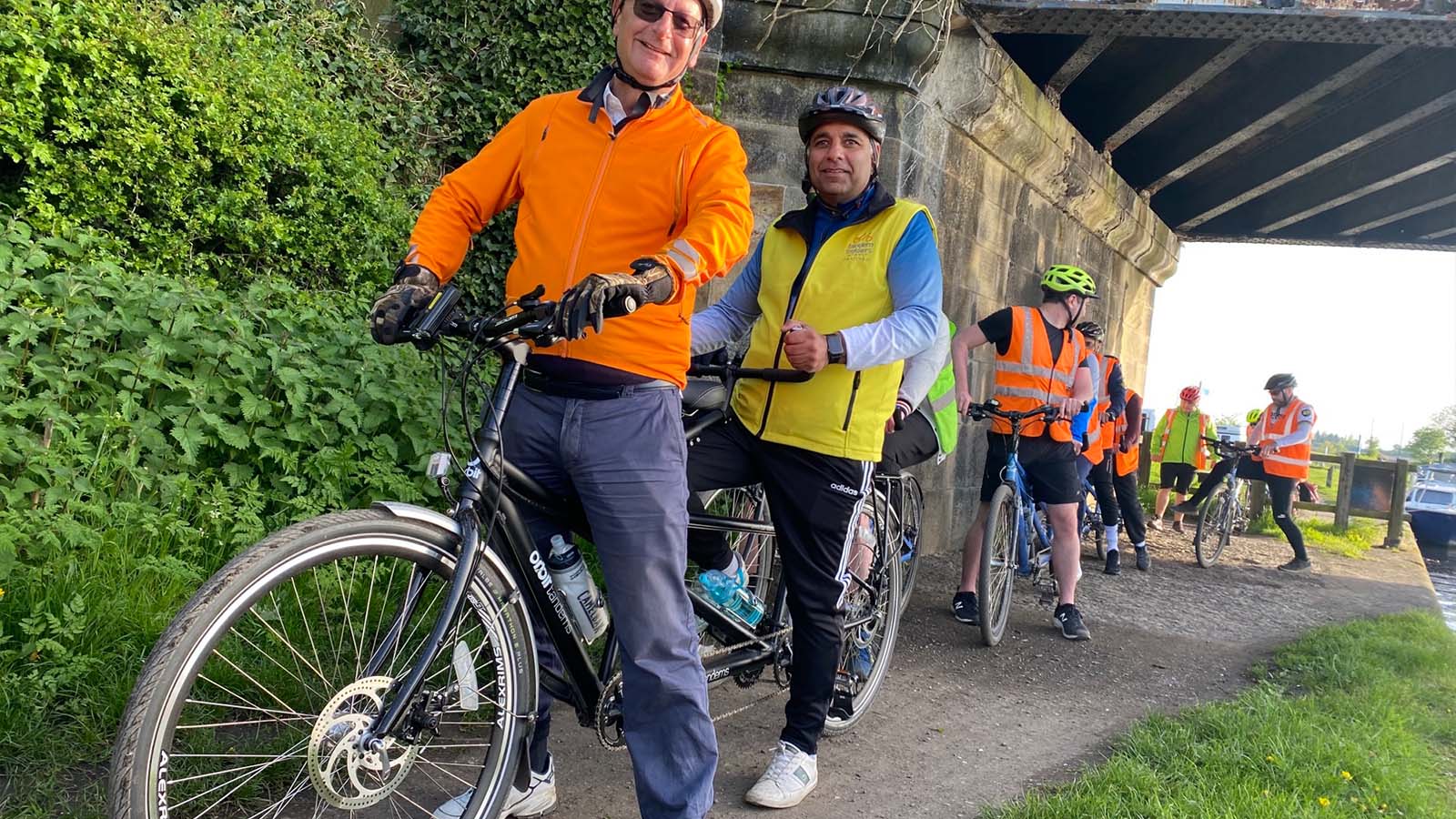 Wakefield Open Country’s new tandem in operation.
Wakefield Open Country’s new tandem in operation. A group from Wakefield Open Country proudly show off their new tandem.
A group from Wakefield Open Country proudly show off their new tandem. 
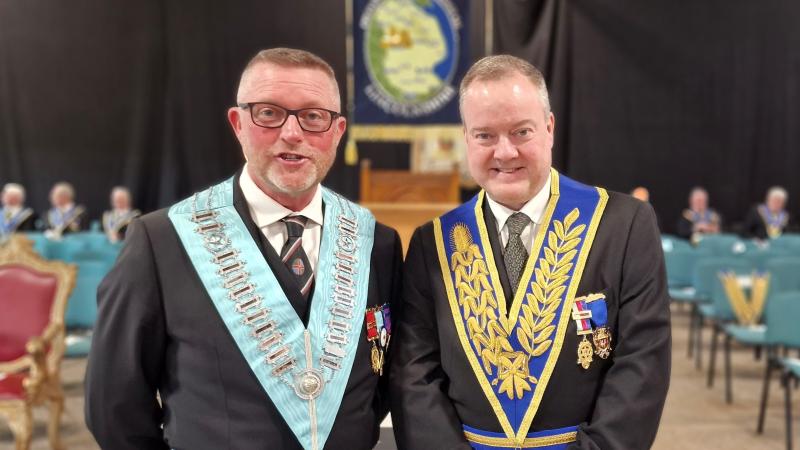
 One of the young patients on the Children’s Oncology Ward at Leeds General Infirmary.
One of the young patients on the Children’s Oncology Ward at Leeds General Infirmary.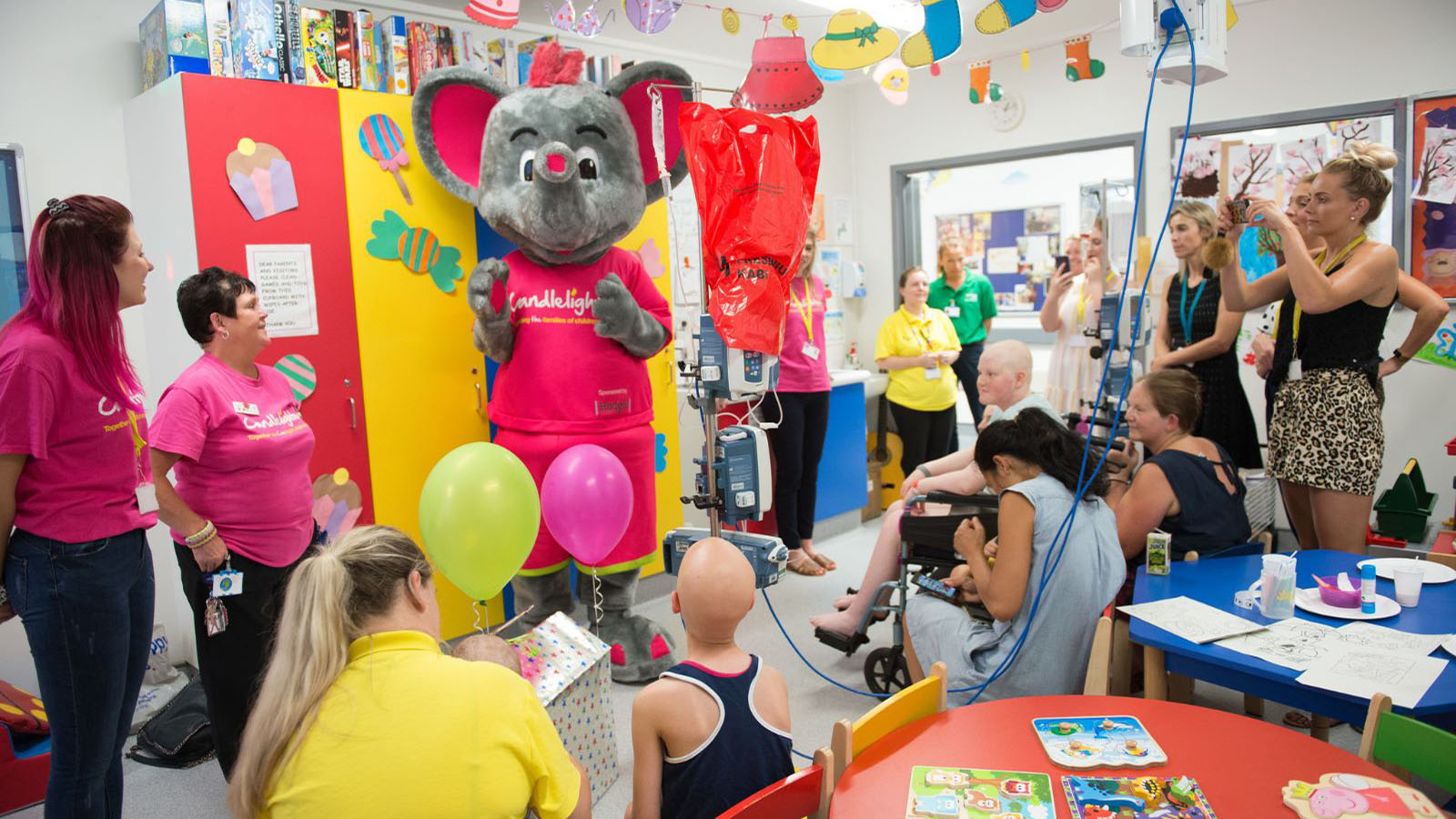 An eventful day for the young patients at Leeds General Infirmary’s children’s oncology ward.
An eventful day for the young patients at Leeds General Infirmary’s children’s oncology ward.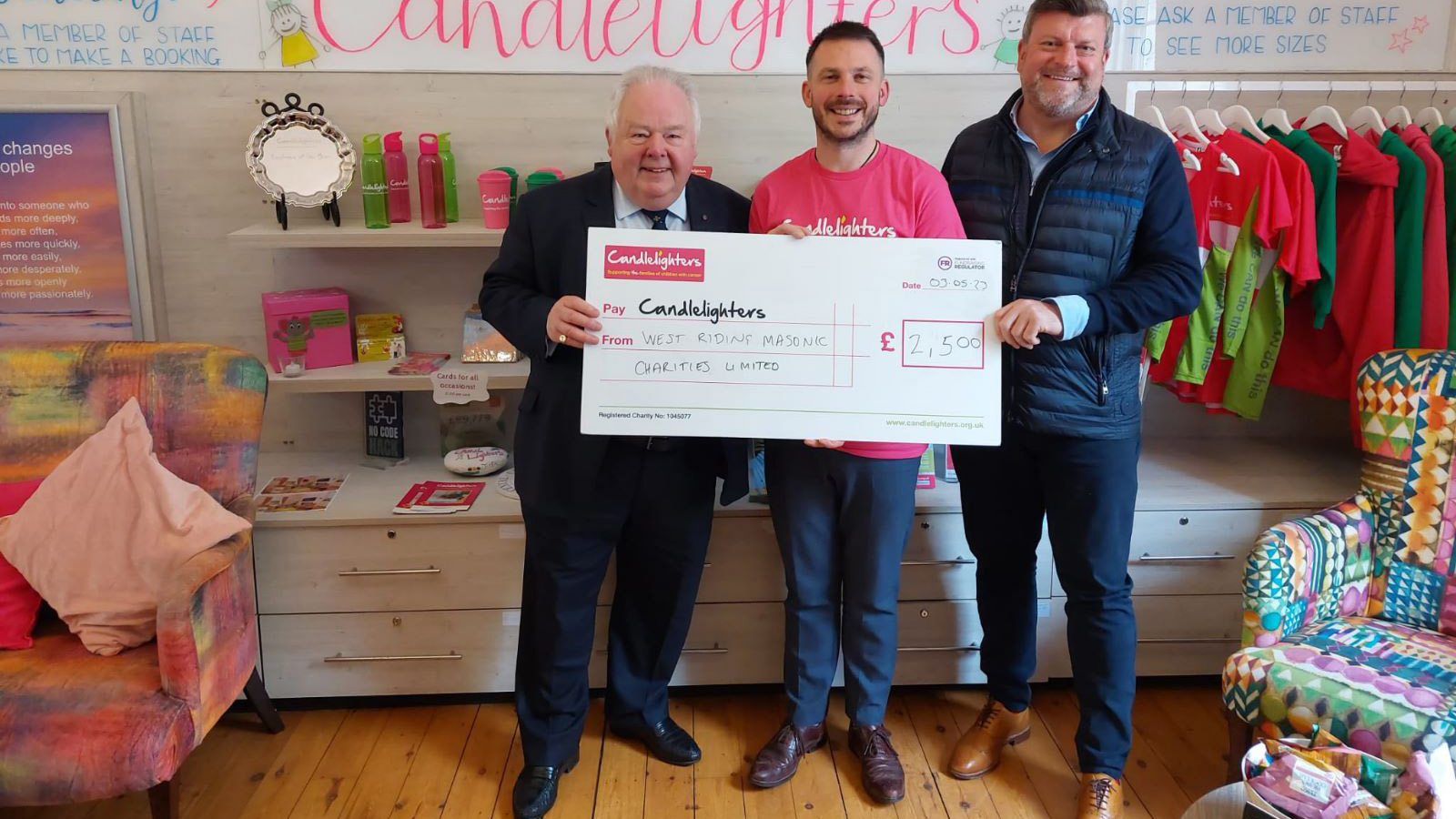 Presenting the cheque to The Candlelighters. Pictured left: Keith Madley (The Leeds Lodge), Chris Salt Candlelighters) and Simon Penny-Smith (Leeds Lodge).
Presenting the cheque to The Candlelighters. Pictured left: Keith Madley (The Leeds Lodge), Chris Salt Candlelighters) and Simon Penny-Smith (Leeds Lodge).
